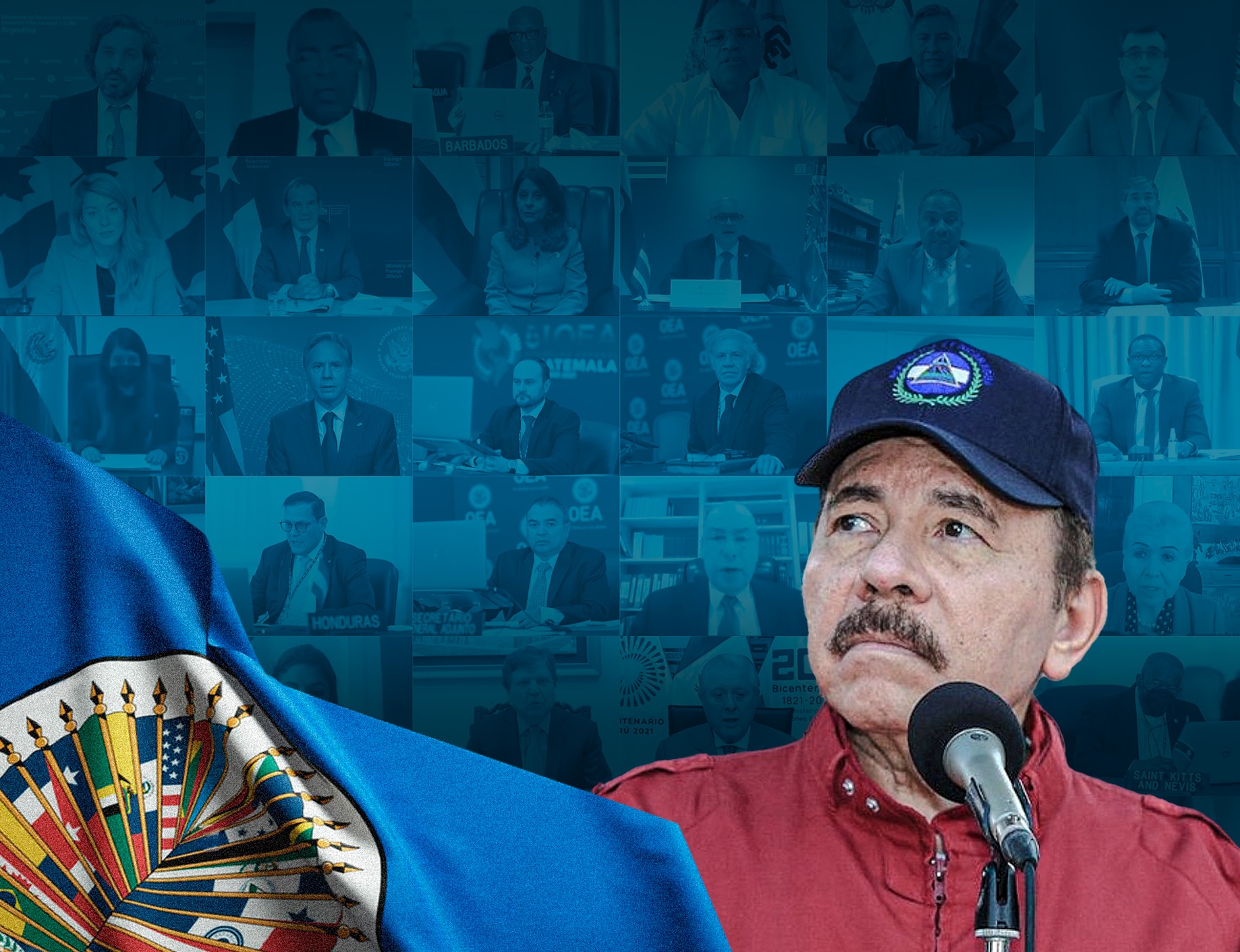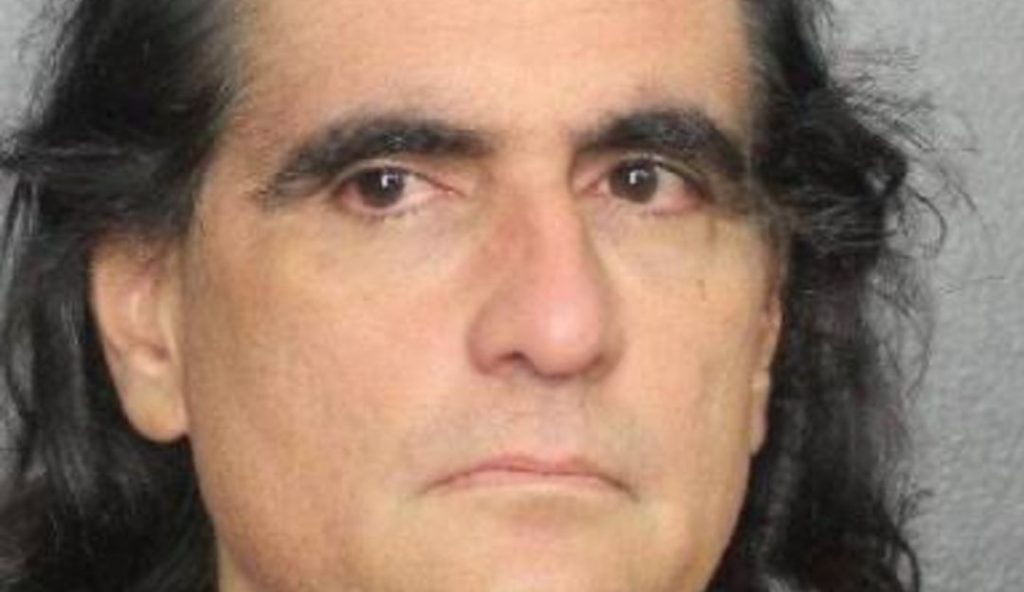The director for the Americas of Human Rights Watch, José Miguel Vivanco, celebrated the 25 votes of the OAS member states that declared the elections in which Daniel Ortega was re-elected “without legitimacy”, without political competition or guarantees, but warned that taking taking into account “the precariousness that exists throughout the region in terms of adherence to democratic values, it is difficult for the 23 votes necessary to apply Article 21 of the Inter-American Democratic Charter to Nicaragua and suspend it from the OAS.”
In an interview with This week and CONFIDENTIAL, Vivanco advocated the creation of a high-level commission led by the OAS with the participation of the European Union and the UN Secretary General to “visit Ortega and in the event that they give him an ultimatum”, due to his status as de facto regime. “It is not easy for Ortega to accept an interaction with a high-level commission,” Vivanco admitted, which is why this must be “a proposal with muscle and that the measures proposed have the necessary teeth.”
The OAS resolution approved this Friday by the foreign ministers transfers to the Permanent Council the responsibility of evaluating the crisis of democracy in Nicaragua no later than November 30, to decide whether or not to apply Article 21 of the Democratic Charter. What political options does the OAS have?
To begin with, the OAS resolution is excellent given the regional context, where what prevails are populist governments, and the exception is governments committed to the rule of law, to the Democratic Charter, and to fundamental rights. That a significant majority of 25 OAS member states have agreed to condemn the elections and declare them illegitimate, the specific points of agreement are really very important, and the terms of that condemnation, to declare that the election or the fraudulent reelection of Ortega has no legitimacy; and in the fifth point, it instructs, orders the General Assembly, which is the highest entity of the OAS, and which brings together the will of the states represented by their foreign ministers, 25 member states instruct the Permanent Council so that, depending on of the Democratic Charter, make an evaluation in 15 days from now of the internal situation and from there they have to come out, not only a diagnosis, but also some concrete measures, it seems to me that it finally places that dictatorship with all the attention that deserves, and hopefully! The OAS manages to gather 23 votes, which is what it needs, 23 member states, not 25, that are willing to apply Article 21 of the Democratic Charter to Nicaragua and that, of course, implies suspension.
I want to be very frank, I think it is important to always tell the truth and not raise false expectations. Taking into account the precariousness that exists throughout the region in terms of adherence to fundamental rights and democratic values, it seems to me that it is difficult for those 23 votes to meet, 25 met for a strong condemnation, but from there, To assume that there are 25 or 23 member states willing to suspend Nicaragua for electoral fraud, is another question and it is another task.
There was a noticeable change in the position of the Government of Argentina, which distanced itself from Mexico, and instead of abstaining, it voted in favor of this condemnation resolution. What does this change in the Government of Alberto Fernández mean?
The Argentine vote, which this time does join the majority of the States that condemn what happened in Nicaragua, is a 180-degree change in Argentina’s position, in a very short time, and I think the explanation lies in the cost it had. internally for the Government of Alberto Fernández to remove the body from the syringe, and instead of calling things by name in the past, maintaining that by virtue of the principle of non-interference, it was not possible to pronounce clearly or condemn the electoral process in Nicaragua.
Argentina has repeatedly maintained that position, which is really a shame, and reflects an abdication of the current Argentine government in the face of what Argentina’s foreign policy has been historically since democracy was recovered, since the end of the dictatorship, which has been quite consisting of defending democratic principles and human rights; This time, instead, in the election that took place this week, they modified their position 180 degrees, which is very good, and we must applaud it, because that is Argentina’s foreign policy, which is consistent with its history, and which is also obviously consistent with its international legal obligations.
It also gives me the impression that it may have been the fruit of the interaction between the Argentine government and probably the Biden Administration, because Argentina needs all the support it can get to renegotiate its situation with the International Monetary Fund. Anyway, it does not matter, what were the reasons that Argentina had to change position, the important thing is that today Argentina is in the correct position regarding the discussion about Nicaragua.
On the other hand, Mexico continues to invoke the Estrada doctrine of non-intervention, despite the fact that in 1979 Mexico itself advocated and supported the replacement of the Daniel Ortega dictatorship in the OAS. The Mexican Foreign Ministry says that they do not endorse human rights violations but that they advocate a dialogue around democracy in Nicaragua. Will this position of Mexico remain unchanged?
Mexico’s position continues to be highly questionable, it takes refuge in the principle of non-interference; although if you take a good look at the text, it is quite cantinflesque because although it recognizes that there are human rights violations, and on the other hand it also admits that it is important to respect the rules of the democratic game, it does not take the step, it does not conclude, Rather, it makes a series of zigzags and contortions to avoid pronouncing itself on the issue in Nicaragua. The truth is that this takes Mexico back to the time of the PRI, to the historical times when Mexico was ruled in practice by a single party.
In any case, I think it is also necessary to criticize Mexico because it alludes to the need for dialogue; And one wonders, dialogue between who? Between the opposition to the dictatorship and the Ortega dictatorship? When the symmetry between one and the other is enormous; In other words, the opposition is a victim of persecution by a dictatorship and there is no shared responsibility regarding the conditions that exist in Nicaragua; The only and exclusive person responsible for the disaster, for Nicaragua’s deplorable record in terms of human rights and the social and economic situation, is Ortega and Mrs. Murillo, those are those responsible and, of course, their environment, and the Police, and those who they have political responsibilities, and also in the judicial sphere; but the opposition is simply a victim.
Now, who would that dialogue be between? Between the dictatorship and the international community? Well, that could be something very different. It seems to me that it could be, perhaps, one of the proposals, of the Permanent Council, to design a committee of democratic governments, committed to the cause of democracy and fundamental rights that visit Ortega, and that in fact give him an ultimatum, and explain to him that, if he already lacked legitimacy for having exercised power in a despotic way, like a tyrant, today he is in the worst circumstances, because his last election is not recognized as valid, and he is already a de facto regime.
Until today, as the OAS resolution says, Ortega has not accepted any kind of dialogue with the OAS or with any other international actor, not even Mexico or Argentina. How effective can these mechanisms of diplomatic, political and economic pressure be to generate what the Nicaraguan people demand, which is the suspension of the police state, to regain freedom in the face of an authoritarian regime like Ortega?
It is not easy for Ortega to access a communication, an interaction, I don’t know whether to call it dialogue, but at least to interact and receive a high-level Commission; It will depend on whether, for example, the OAS manages to join forces with the European Union, with Canada, perhaps with a representative of the United Nations Secretary General, this has to be very powerful, it has to be a delegation or a proposal with muscle; because otherwise, we know Ortega is a shameless and is willing to govern without the slightest facade of legitimacy. He decided a few months ago to kidnap each of the political rivals and leave them incommunicado in El Chipote; as well as leaders of civil society, and the truth is that he cares very little about the reaction that occurs both internally and internationally. So that he understands where he stands today requires a major diplomatic effort, which the OAS has the possibility of leading, but hopefully it will also be accompanied by others, with states that belong, for example, to the European Union.
If an immediate solution to this crisis is not envisioned, does the international community, the OAS, the European Union have a medium-term strategy? Because the attention that today is concentrated in Nicaragua, possibly tomorrow will cease to exist, and it will focus on another country.
That is probably Ortega’s calculation. He may think that what he needs to do is buy time and delay things, and let the OAS meet, and the Permanent Council meet, and that there be also an extraordinary assembly of foreign ministers to assess the situation in Nicaragua; but to the extent that he clings to power, he closes the doors and is not impressed; It is likely that this is their strategy, thinking that some major crisis will come that will distract the attention of the OAS governments, and that is possible we live in a situation of great instability and every day the attention, not only at the regional level, globally, it changes, it varies.
I therefore hope that taking into account, precisely, the risks that exist, that Ortega does not take seriously the process the situation in which he finds himself, and the measures that are designed really have the necessary teeth, it is essential that the Member States, especially those most committed to the democratic cause, evaluate all this and propose a series of actions that may rise to the occasion.
















